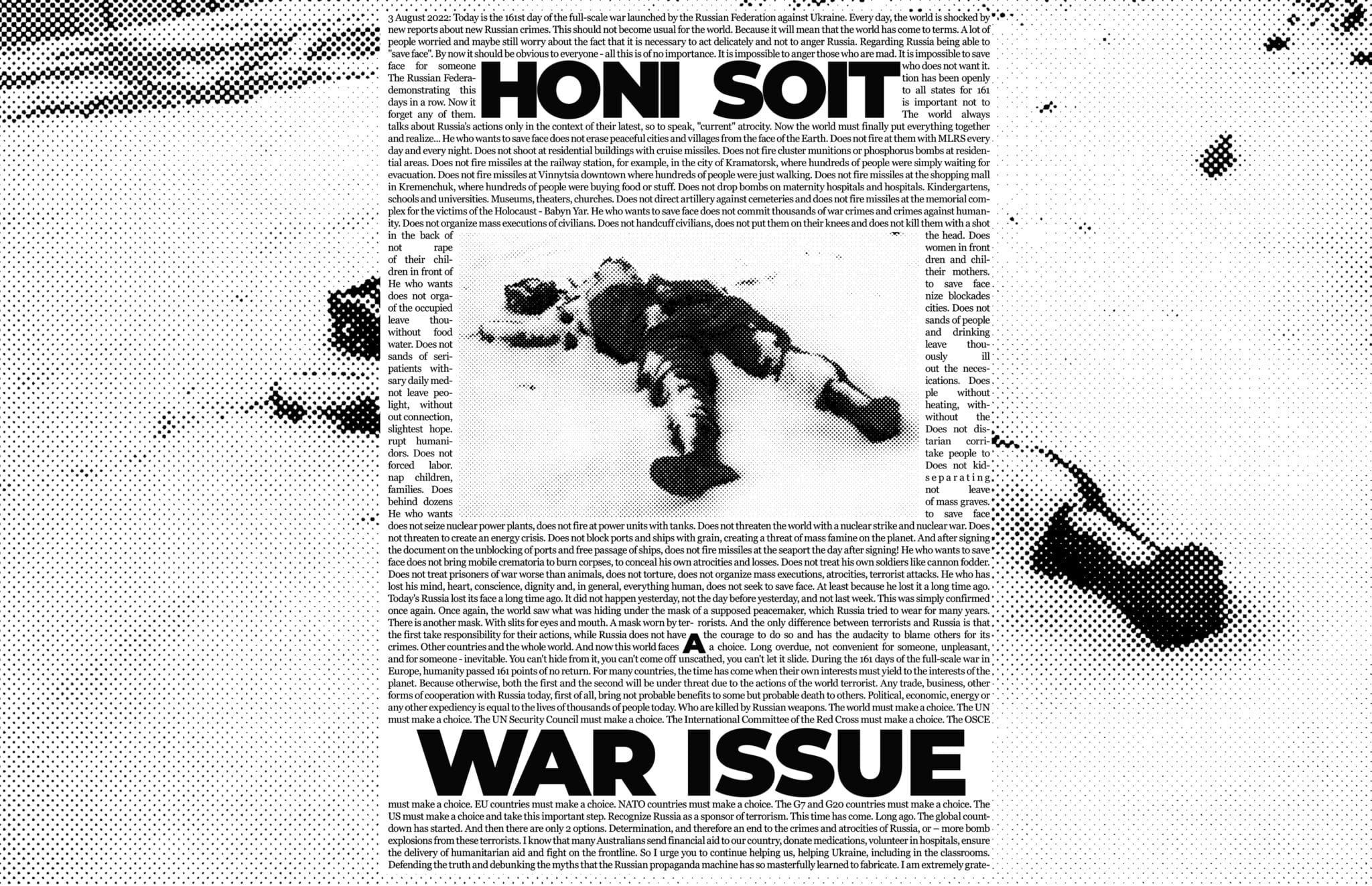It is no revelation to observe that there is an abundance of hate and violence in the world. It is another thing to say that we are not nearly as abstracted from it as we might think.
The theme of this week’s edition is war. It may feel like an obvious choice for a newspaper given the current geopolitical climate, but far less obvious are the links between war and our own community. Culture wars, climate wars, drug wars, and wars of conflict and colonisation continue to shape the course of our lives. They are the reason that the non-Indigenous among us stand on this land.
This edition looks at the colonial wars that took place here, those who have fled war to arrive at our university, and those who continue to study while facing the loss of their motherland, or potential conscription themselves.
Our contributors have written brilliantly on the war for our urban spaces, the war on drugs, and the consequences of war on our environment.
On page 18, Amelia Koen has looked into the past of this very rag to reveal how students at USyd have faced and resisted war in all of its forms.
In this week’s feature article you can find an interview by myself and Amelia interviewing some of the bravest artists alive, George Gittoes and Hellen Rose. Their journey from collective art in alternative Sydney to helping and documenting some of the most war-torn communities on the planet is endlessly inspiring. I know a 5-page read is an ask, but trust me, it’s worth it.
We have a responsibility to stare conflict in the face. To ruthlessly critique the injustices that feed into and result from war, to resist complacency.
Through looking at war, we can see peace. I don’t think that war is inevitable. I believe that anything we can imagine, we can achieve. I hope that this edition helps to build empathy and understanding, and to help you imagine a world without war.
As my last EIC edition of Honi, some thanks are in order. I write this editorial sitting in the Langford office for what is our antepenultimate edition, and I am filled with gratitude for the opportunity that this year of editing has been. Every year, a new editorial team takes charge of the paper to create their own unique vision and stories — I am honoured to be a part of this history, and am proud of everything we’ve created. Thank you to the editors who have come before, and to those who will follow.
Thank you primarily to my fellow editors this year for making this (and every) edition happen, editing this paper has changed me for the better. Thank you to George and Hellen for your time, your stories, and for showing me how art can continue to affect meaningful change.
Thanks to Amelia for putting in the hard yards, especially with the feature. Thank you to all of the contributors who have bravely shared their stories of survival in a world that threatens to be ripped apart.
Finally, thanks to all of the readers of this week’s edition who choose not to look away.





